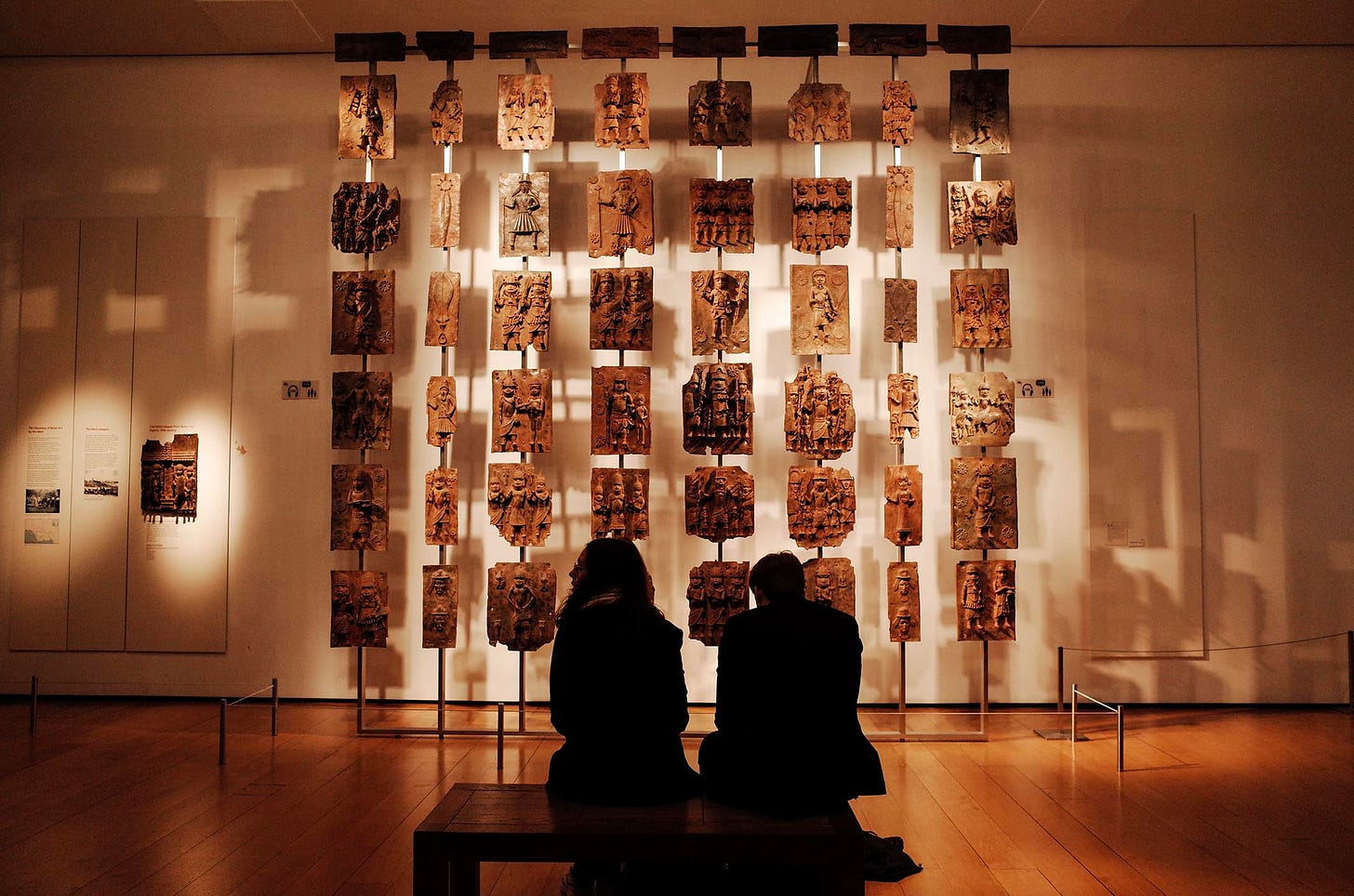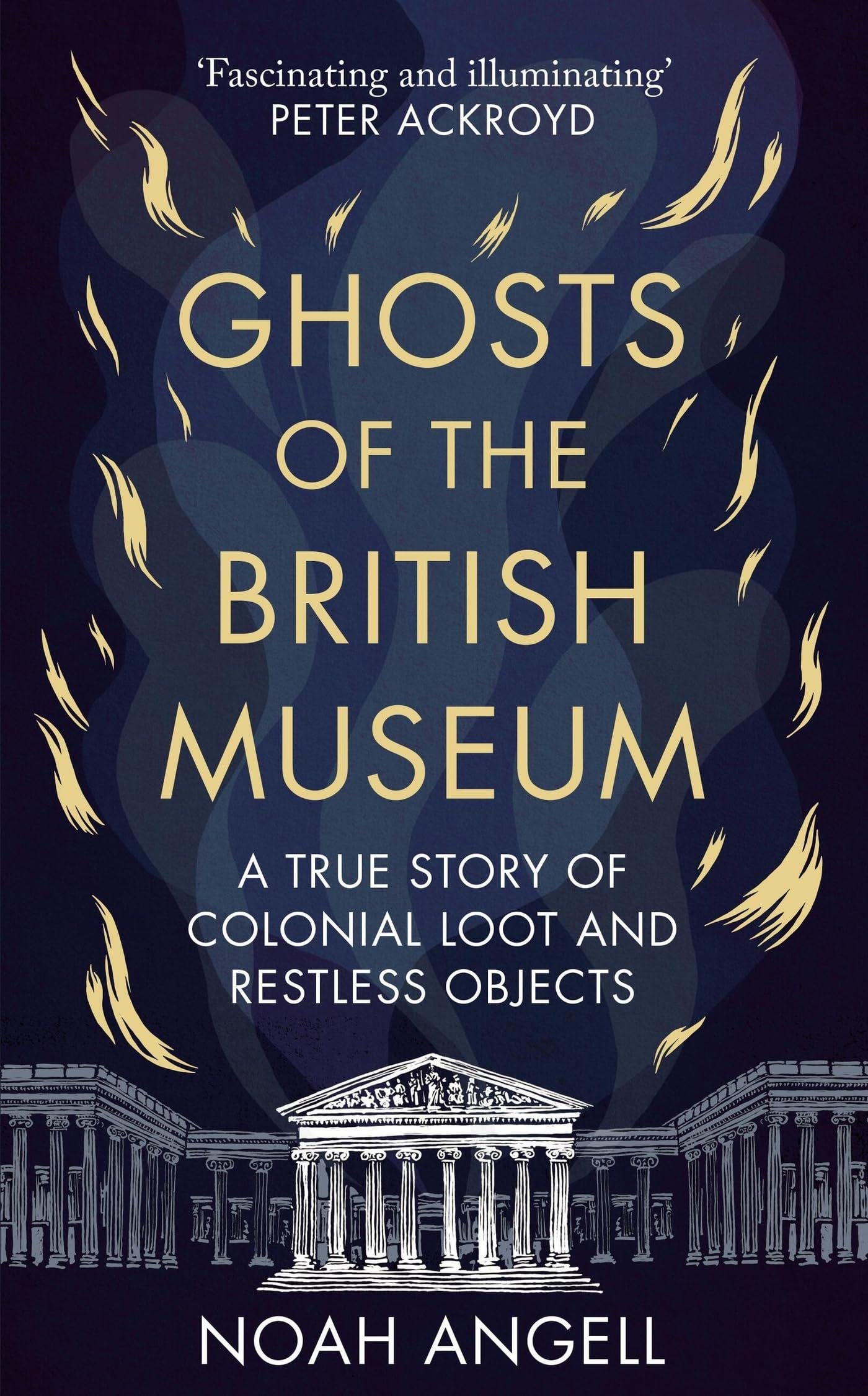Review: The spirit of our past stalks their corridors
Museums of colonialists are haunted – even if their own consciences are not.
Imagine your ancestors are being held hostage by a foreign nation – so foreign that they mostly don’t look like you, and live on some faraway island. They took your ancestors away after invading your land and fighting wars of conquest or punishment; wars where they burnt down your palaces and beheaded your kings.
You’ve been pacified, though you won your independence back. These days you and those foreign nations profess friendship so they can continue to extract your wealth and give you handouts that you sign for in suits they taught you to wear, with handshakes and smiles.
And yet, when it comes to what was stolen, those nations will not hear anything about returning what they took from you: your gold, snuff boxes, guns, reliquaries, war cloaks, walking sticks, sceptres, and the bones of your chiefs and kings.
And these friends have arrangements – laws – they’ve promulgated so that what was looted now belongs, through murky means, to them.
Your friends don’t even really know what they have – partly because they didn’t ask you for meaning and context, assuming as they went; and partly because they stashed tons and tons of things in dark, dusty basements, and never kept reliable inventories.
They will also put up every barrier between you and them to prevent you from even visiting your heritage, the wealth of your people, the bones of your ancestors, the symbols of your very identity. You’ll likely never get a visitor’s visa to their faraway island.

This is the story of the British Museum, and similar ethnographic museums across Europe.
I’ve never been to the house of horrors that is the British Museum, but Noah Angell has, and he’s done the Lord’s work in his book. It is the only tour, virtual or otherwise, that you’ll ever need.
The British Museum, according to Angell, is full of restless relics.
There’s a concept that material objects take on, for lack of a better term, “psychic vibes” – even if they were not formally used in ways that call on forces from the other side.
And that’s one reason why the museum is haunted. Millions of objects from cultures all over the world are stored there – perhaps “abandoned” is a more accurate term – in plastic bags and crates.
With a mere 1% of an “estimated” eight-million artefacts on display, the museum is only marginally an exhibition space; in material terms, it’s mostly a site of disappearance.
Angell interviewed former and current workers: some curatorial staff, but mostly people like janitors and security officers, people who are there after hours and who spend a lot more time with the artefacts than anyone else.
Bones, skulls and more, some local to the United Kingdom but much, much more from its former colonies. It’s baffling why this is still the case so long after the end of colonialism.
They have grand and spooky stories to tell: doors closing by themselves, inexplicable temperature changes, haints walking the halls and galleries, and more. There’ve even been a few deaths at the museum, although you won’t hear much about them officially.
There’s another reason for the haunting, though: the British Museum is a cemetery, a place where human remains are kept. Bones, skulls and more, some local to the United Kingdom but much, much more from its former colonies.
It’s baffling why this is still the case in the year of our Lord 2024, long after the end of colonialism. But did colonialism ever really end? This is an argument that it never did.
Who does this hoarding serve?
Considering that many of these remains were taken in pursuit of now-disproved race science theories, why hold onto them?
More importantly: Should these people not be laid to rest, in their own lands, by their own people, according to their burial customs?
Shockingly, Angell also mentions last year’s scandal – where Peter Higgs, a senior curator, was accused of stealing hundreds of artefacts over the course of a decade and selling them on eBay.

He was sacked when he was finally caught. It appears that the British Museum, not really knowing what they have in storage, didn’t even realise the theft was happening – and is still not sure what exactly was stolen.
Some of these items, according to The Guardian, were “not of major importance” – which again begs the question: why did the museum have them in the first place, and who are they to judge?
It’s a time of reckoning for Western museums, and the details of this book make excellent additions to the list of reasons why.
The British Museum remains the “murky prison” for foreign antiquities that former Greek president Prokopios Pavlopoulos said it is.






